×
SparkFun will be closed on Tuesday, December 24th, and Wednesday, December 25th, in observance of the Christmas holiday. Any orders qualifying for same day shipping placed after 2:00 p.m. (MST) on Monday, December 23rd, will be processed on Thursday, December 26th, when we return to regular business hours. Wishing you a safe and happy holiday from all of us at SparkFun!
Please note - we will not be available for Local Pick up orders from December 24th-December 27th. If you place an order for Local Pick-Up we will have those ready on Monday, December 30th.
Arduino Apollo3 Core (v2.0.5)
We have been working hard to update our Arduino Core for fixing bugs and adding some exciting new features to support our Artemis line of products.
Over a year ago, SparkFun set out to develop the next flagship microprocessor module that can be a mainstay for future generations of development boards. The SparkFun Artemis module contains an extremely fast Cortex-M4F with BLE 5.0 running up to 96MHz, and with power as low as 6uA per MHz (less than 5mW). A lot of work up front was getting FCC/IC/CE certification – the world’s first open source, US manufactured, BLE module – and the feedback from a hardware perspective has been great. Since then we've put our efforts toward the software side to make sure you can utilize the full power of the Artemis module (especially the onboard BLE 5.0). Below you can get a rundown of where we are now and make sure to ask any questions in the comments below about the future of Artemis!
Mbed-OS Core
Starting with v2.0.0, our Arduino core has been built on an Mbed OS foundation. The core still contains all of the functions that you expect from Arduino, but what is happening “under the hood” has changed.
The most immediate benefit that this has is compatibility with the ArduinoBLE library (right now you may get some compatibility warnings - these can be ignored, and will go away in the future).
Other benefits include access to Mbed OS functionality! Check out the Mbed OS API for some of what this means. Behind the mbed:: and rtos:: namespaces you will find access to the Mbed infrastructure; this includes functionality you would expect from an RTOS (real-time operating system), including threads. If you are looking for a place to start working with some of this functionality, try out our examples. A particular example to call attention to is located in Examples->Apollo3->Threads. This allows the Apollo3 module to run multiple “programs,” no longer constraining you to a single loop().
The Latest
V2.0.5 included build fixes for Linux users, fixes to our SPI implementation that were causing build errors, Serial fixes for the Artemis Nano, and build fixes for windows users with spaces in their username. Check out the latest patch notes for this release, and all releases, on our releases page.
What's Next?!
Right now we are focusing on bug fixes and compatibility improvements, but we have some exciting ideas for the future. If you have your own ideas or suggestions, let us know in the comments below!
If you want to see a preview of our latest versions before they go live, check the discussions page on GitHub for the latest updates!
V1 Core Support EOL
It's worth noting that the v1 core does not have the latest features, but may help you if you are encountering errors with the latest version. We will continue to keep this available to download for some time. If you have problems in the latest version, we would love to hear your feedback on GitHub. If you are happy with the v1 core and don’t want to switch, that's ok! But understand that this core will not see many more updates, and the support will wane over time.
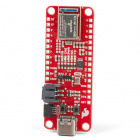
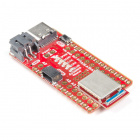
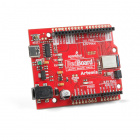
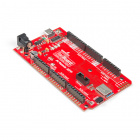

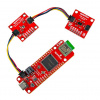
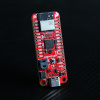
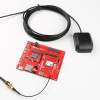






Will these core updates also affect Edge board? And about mbedOS, will both, full and bare metal, profiles be available, or just bare metal with added ble?
Wire1 can't be used on Thing Plus. I made some headway fixing it by editing variant.h but now get a runtime mbed-OS pinmap error. (See more in my forum posts.) I believe this is related to issue 347 https://github.com/sparkfun/Arduino_Apollo3/issues/349
I bought the Artemis Blackboard. I kept it as I did not have enough time to play with it then. When I tried to use it last month, I couldn't find any support or firmware updates for it. I only found the red board updates and definitions. Why is this? I am very disappointed.
From what I can tell y looking at the schematics, the Blackboard and the Redboard are identical, so you should be able to just use the redboard config files.
Even if they were not, the only difference between the available boards is the board layout, and sensors/actuators on the PCB. They all have the same core, and the only difference between them in the Arduino Library is with the pin names matching what is printed on the circuit board.